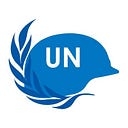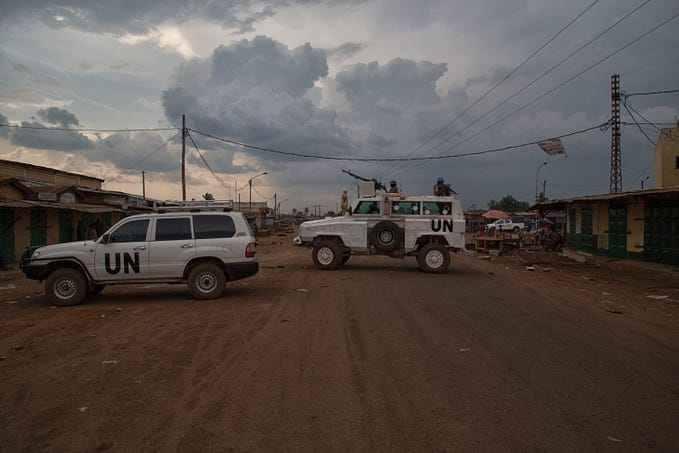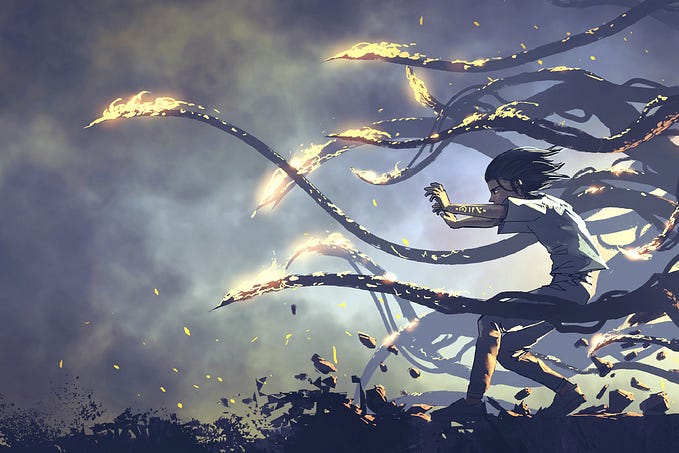In conversation with Chathurika Bombuwala
Major Chathurika Bombuwala speaks to Gitika Bhardwaj for International Women’s Day about her experience serving as a soldier in Sri Lanka, which is facing its worst economic crisis since 1948, and in the Western Sahara, a territory that has been disputed since 1975, as part of a series exploring women in international affairs.

Chathurika Bombuwala, born in Negombo during the Sri Lankan Civil War between 1983 and 2009, what inspired you to want to work in the army?
Since childhood, my ambition was to join the Sri Lankan army. Experiencing the Sri Lankan Civil War was very tough. We were afraid to leave our homes. But, when I joined the army, I saw disabled soldiers and soldiers who had been killed in action laying in hospitals around the country and I saw the reality of what the army does.
In Sri Lanka, women face some limitations socially but if she wants to join the army then, legally, she has the freedom to do so. My father gave me his blessing but my mother and my two sisters were surprised. My mother told me: ‘If you want to join the army, join as a doctor, rather than as a soldier.’ So that’s how she ultimately gave me her consent.
I studied at school and college with the hope of becoming a doctor in the army but I didn’t get the grades needed. Then I saw an advertisement in the local newspaper where they were recruiting women to work as officers in the army. It was my first job application and my first job and I am happy to say I was successful.
You joined the Sri Lankan army at the age of 20. What were the challenges and opportunities for you when you joined and how far have you found these have changed over the years?
When the Sri Lankan Civil War ended after 26 years, it was peacetime, but that was also challenging because people who had suffered from the war had to now start a normal life.
I worked in Jaffna in the north of the country for three years as part of the army. We provided people with ration bags. We ran programmes with schoolchildren. Then there was a bomb blast between 2019 and 2020. Shortly afterwards, the COVID-19 pandemic happened, which the military had to do a lot to help people with, particularly with getting the vaccine. So there have been a lot of challenges Sri Lanka has faced since the war ended.
But the army has given me a lot of knowledge, skills and experience compared with a lot of my schoolmates who went on to do other things. Sometimes when I see my schoolmates they say: ‘Why did you join the army?’ I tell them that one of the most important things I have learnt is how to face challenges. I never thought that I would be able to do this, but now, I’m doing it.
In Sri Lanka, women serve for a period of service less than men. Men can serve until the age of 55 while women have to take our retirement at the age of 45. These are some of the barriers for women in the army that we still have in Sri Lanka today.

You commanded over the women’s regiment in the Sri Lankan army which the Nigerian army used as a model to raise its own women’s regiment, the first in West Africa, in 2018 too. How far do you think Sri Lanka is progressing with increasing the participation of women within its armed forces?
Yes, [my regiment] was raised in 1979 as a women’s regiment. We now have more than 4,000 women soldiers and more than 200 women officers. These women, like myself, often wish to go on to serve in peacekeeping with the UN. Indeed, Sri Lanka is now giving more opportunities to women in the army than it has done in the past, which is a great sign of things to come.
Today, 6,808 women serve in UN peacekeeping missions around the world including in Mali, Kosovo, Cyprus, Lebanon, India and South Sudan. In 2022, you joined your first UN peacekeeping mission in the Western Sahara. What has been your experience as a woman peacekeeper in the region and what do you think about the international progress of women in peacekeeping around the world?
In the beginning it was a huge challenge for me. To come to the Western Sahara from Sri Lanka, I’ve had to adapt, as it was the first time I had been in a desert. [Laughs] But I remember thinking at the time: ‘I will face this challenge.’
The Western Sahara hasn’t faced large-scale conflict in recent years but we did have a crisis in the east of the territory recently. The population was left without food or fuel for a couple of weeks so we decided to take measures to remove the women in case there was violence. But, you know, what the women told us? ‘We can live.’ They stayed despite the prospect of violence. It showed me that nothing is impossible.
Indeed, the best thing about working here is that we are all equal. Nobody says, this woman can’t do this, and this man can do that. We all serve together.
Sometimes we have to go on patrols for more than 10 hours and we may have two women with two men but everybody understands the situation. Men know that if we want to take a rest then they give us the chance to do so. I’ve seen no discrimination against women here. Indeed our deputy force commander, Commodore Faustina Boakyewaa Anokye, is also a woman which I’m very happy about because it encourages women, like me, to be like her too.

During my time training with the UN, I’ve seen that, if women are given opportunities to learn, they will develop into powerful peacekeepers.
Here, at the United Nations Mission for the Referendum in Western Sahara, where I am stationed, women are 30 per cent of the force. Trying to achieve the equal percentage of men and women serving as peacekeepers is important because women and girls are among the most in need in conflict settings and so they are grateful to see a woman either as a peacekeeper or at the negotiating table supporting their needs.
For me, I want to continue working under the UN flag, and show the world how powerful women can be.
Sri Lanka is facing its worst economic crisis since 1948 according to the UN. Widespread protests against the Sri Lankan government, following soaring inflation and fuel shortages, erupted last year as poverty doubled to more than 25 per cent, while the number of Sri Lankans needing humanitarian aid doubled to 3.4 million people. What do you believe needs to happen in Sri Lanka going forwards?
It is extremely difficult for the people of Sri Lanka at the moment. There has been a spotlight on corruption in the country and how this has played a role in the current situation it finds itself in. We are going forward but we still have a lot of obstacles to overcome.
I believe, if we are patient, in a few years, the country could be better than ever before. Sri Lankans are more conscious of good governance than they were in the past and they will not let something like this happen again. It is my belief that, together, we can build a better future for Sri Lanka.
This article was initially published in Chatham House. If you would like to find out more about women in peacekeeping, listen to the Seeking Peace series, from UN Peacekeeping.










